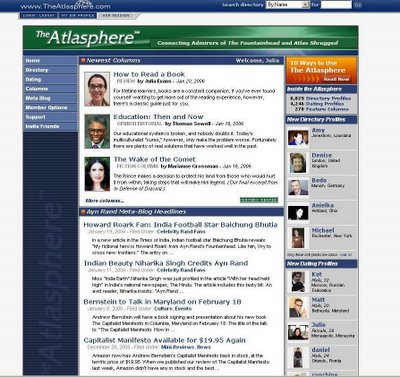Looking for Comedy in the Muslim World
It’s too bad we lost Aristotle’s work on comedy, because it may have helped Al Brooks find what makes Muslim people laugh.
Two elements are often present in good comedy: the unexpected or out of place, and the kernel of tragedy amidst the humor. Brooks succeeds with the unexpected, but the only tragic element in this movie is that he fails to answer (or even explore fully) the issue presented in the film’s title.
Al Brooks’ premise—that the United States government has sent him on a mission to India and Pakistan to find out what makes the Muslims laugh—is funny. It’s funny because it is unexpected, novel, and sets up the potential for a lot of chuckles.
Halfway through the movie, however, the plot takes a turn away from the film’s premise down a road well-traveled (hence, not funny): his exploits are misinterpreted by the Indian and Pakistani governments, thereby causing the two countries to blunder their way to a military build-up at the border. (Wasn’t this in a John Candy movie about Canada?)
Instead, Brooks should have explored a topic he merely touched on, which could have answered the whole question of the film. When Aljazeera invites him to an interview, Brooks is disappointed to find out they aren’t interested in his project, but wanted to offer him a role on a sitcom (for Aljazeera’s new entertainment network). The premise of the sitcom would be a Jew living in an apartment house full of Muslims. Title: “That Darn Jew.” Funny. It’s funny in its ridiculousness.
When All in the Family aired on American television in the 1970’s, it was the first time America openly laughed at racism (therefore laughing at ourselves). We laughed at it because Archie Bunker was preposterously out of touch with the changing moral tide. We also pitied him at times, because we saw the kernel of tragedy beneath the jokes.
Shakespeare’s Fallstaff is a similar character: when he pretends to be dead on the field of battle so he doesn’t have to fight, we laugh at his preposterousness. We laugh, but we also pity him because we see that his lack of values will cause Harry to abandon his friendship in order to become king.
Brooks missed an opportunity to highlight the absurdity of anti-Semitism. Despite some early chuckles, he fails to answer the question he puts forth in the beginning of the film: what makes Muslims laugh? He fails to really explore the differences in senses of humor between the western and Muslim worlds. Perhaps he didn’t see the potential; perhaps he was afraid to offend anyone. Although Americans may be ready to laugh at anti-Semitism (think of dancing Nazis singing “Springtime for Hitler” in the Producers), is the Muslim world ready to laugh at itself? The differences in our senses of humor stem from differences in our fundamental values. It would be funny, if it weren’t so tragic.
Two elements are often present in good comedy: the unexpected or out of place, and the kernel of tragedy amidst the humor. Brooks succeeds with the unexpected, but the only tragic element in this movie is that he fails to answer (or even explore fully) the issue presented in the film’s title.
Al Brooks’ premise—that the United States government has sent him on a mission to India and Pakistan to find out what makes the Muslims laugh—is funny. It’s funny because it is unexpected, novel, and sets up the potential for a lot of chuckles.
Halfway through the movie, however, the plot takes a turn away from the film’s premise down a road well-traveled (hence, not funny): his exploits are misinterpreted by the Indian and Pakistani governments, thereby causing the two countries to blunder their way to a military build-up at the border. (Wasn’t this in a John Candy movie about Canada?)
Instead, Brooks should have explored a topic he merely touched on, which could have answered the whole question of the film. When Aljazeera invites him to an interview, Brooks is disappointed to find out they aren’t interested in his project, but wanted to offer him a role on a sitcom (for Aljazeera’s new entertainment network). The premise of the sitcom would be a Jew living in an apartment house full of Muslims. Title: “That Darn Jew.” Funny. It’s funny in its ridiculousness.
When All in the Family aired on American television in the 1970’s, it was the first time America openly laughed at racism (therefore laughing at ourselves). We laughed at it because Archie Bunker was preposterously out of touch with the changing moral tide. We also pitied him at times, because we saw the kernel of tragedy beneath the jokes.
Shakespeare’s Fallstaff is a similar character: when he pretends to be dead on the field of battle so he doesn’t have to fight, we laugh at his preposterousness. We laugh, but we also pity him because we see that his lack of values will cause Harry to abandon his friendship in order to become king.
Brooks missed an opportunity to highlight the absurdity of anti-Semitism. Despite some early chuckles, he fails to answer the question he puts forth in the beginning of the film: what makes Muslims laugh? He fails to really explore the differences in senses of humor between the western and Muslim worlds. Perhaps he didn’t see the potential; perhaps he was afraid to offend anyone. Although Americans may be ready to laugh at anti-Semitism (think of dancing Nazis singing “Springtime for Hitler” in the Producers), is the Muslim world ready to laugh at itself? The differences in our senses of humor stem from differences in our fundamental values. It would be funny, if it weren’t so tragic.


